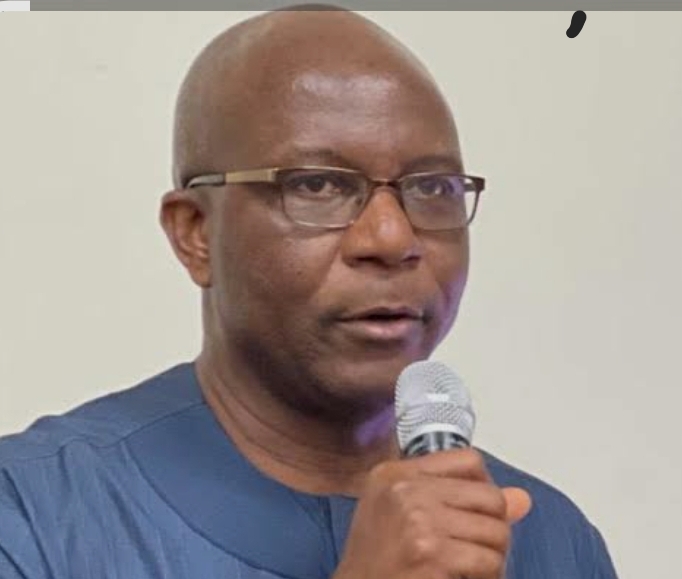
Every Worker Counts:
NASSIT’s Informal Sector Scheme
By Ibrahim Alusine Kamara (Kamalo)
For decades, Sierra Leone’s informal sector — the market women, okada riders, tailors, masons, traders, fishermen, and farmers — have worked hard but lived in uncertainty. They power the economy but often retire with nothing to fall back on. Now, that story is changing.
The National Social Security and Insurance Trust (NASSIT) has launched an ambitious new drive to extend social protection to workers in the informal economy, a bold step that could redefine the meaning of national inclusion and shared prosperity.
“We cannot build a secure Sierra Leone when 80 percent of our workers remain outside the safety net,” says Mohamed Fuaad Daboh, Director General of NASSIT. “Every worker counts — whether in an office or in the market — and every Sierra Leonean deserves the dignity of retirement security.”
A SYSTEM FOR EVERY SIERRA LEONEAN
Under the new informal sector initiative, NASSIT has designed a flexible contribution system that fits the unpredictable income patterns of small-scale workers. Instead of the rigid monthly deductions common in the formal sector, contributors in the informal sector can now pay weekly, monthly, or seasonally, depending on when they earn.
The plan also allows group enrollments through market associations, trade unions, and community-based organizations, making it easier to mobilize participants and reduce administrative barriers.
“Many of us earn today and nothing tomorrow,” says Aminata Kamara, a market woman at Dove Cot. “With this new plan, I can save small-small, knowing that one day I will have something to rely on. That gives me peace.”
BUILDING TRUST FROM THE GRASSROOTS
NASSIT’s outreach teams have been touring provinces — from Bo to Makeni, Kenema to Port Loko — meeting with local traders, drivers, and youth groups to explain how the scheme works. These town-hall style meetings have become platforms for dialogue, education, and empowerment.
According to NASSIT’s Director of Operations, the institution has adopted a “community-first approach”: going where the people are, listening to their needs, and designing products that match their realities.
“We are not sitting in offices expecting people to come to us,” the Director explained. “We are taking NASSIT to the people — in the marketplaces, in the garages, in the fishing communities. That is how real inclusion begins.”
The Trust is also collaborating with microfinance institutions and mobile money operators to make contributions easier and more accessible, especially for those in remote areas.
A SAFETY NET THAT BREAKS THE POVERTY CYCLE
Experts believe that including the informal sector in social security systems is one of the most powerful tools for poverty reduction and social stability. When older workers can retire with income, families are less vulnerable, and communities thrive.
Dr. Francis Tucker, a development economist, notes:
“This NASSIT reform is more than administrative — it’s social transformation. It recognizes that dignity doesn’t belong only to salaried workers. It belongs to everyone who contributes to the nation’s progress.”
The scheme provides retirement benefits, survivors’ pensions, and other protections similar to those enjoyed by formal employees — ensuring that even market vendors or bike riders can have lifetime security once registered.
STORIES OF HOPE
In Freetown’s Abacha Street, Alhaji Kanu, a petty trader, now proudly shows his new NASSIT card.
“Before, I thought NASSIT was only for people with government jobs,” he said, smiling. “Now I know it’s for me too. I may not earn much, but I’m part of something that will protect my future.”
Stories like Alhaji’s are spreading fast, helping to shift the public’s perception of NASSIT from a distant bureaucracy to a people-centered national institution.
LOOKING AHEAD
NASSIT officials say this is just the beginning. The long-term goal is to build a universal social protection system where every Sierra Leonean — regardless of occupation — can enjoy the benefits of national security, dignity, and stability in old age.
“When the ordinary worker in Kambia or Kailahun feels included in the national safety net, that’s when our mission is complete,” DG Daboh declared. “Social security must speak the language of every Sierra Leonean — from the boardroom to the market stall.”
THE BOTTOM LINE
The informal sector has for too long been left behind — invisible in statistics, ignored in policy, and unprotected in hardship. By bringing them under the NASSIT umbrella, Sierra Leone is taking a bold step toward fairness, equality, and national unity.
In the words of one market woman in Bo:
“For the first time, we feel seen. We feel that the system belongs to us too.”
And that — in essence — is what “Every Worker Counts” truly means.